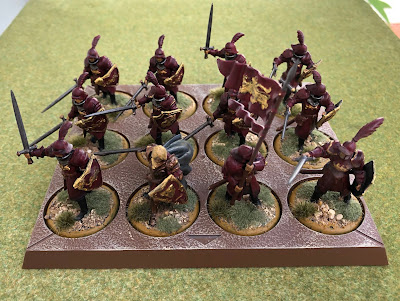There are a lot of settings that can make a good claim to being the history behind Game of Thrones. In this book, David Weinczok makes a good case for Scotland.
While Game of Thrones is of course fantasy, it has very few fantasy elements, other than the odd dragon of course! There are no orcs, elves and all the other Tolkienesque features. There is also very little magic. It is essentially a medieval setting, and there are plenty of historical examples to pick from, many of which have similar dramatic elements.
George Martin himself has said that his main inspiration was the novels of the French writer Maurice Druon, based around the dynastic fight for the French throne in the 14thCentury. I have read one of these and found them hard work, but I can see the connection. The American writer Jamie Adair has a blog which offers many possible historical links, not least the Wars of the Roses. In this context, David Weinczok is possibly making too greater a claim for Scotland. Nonetheless, it’s fantasy, so why not.
He starts with the geography of Scotland, which certainly has a passing resemblance to Westeros. In particular the Isles, which match the Iron Islands better than any part of France or England. Scotland has plenty of castles, although interestingly George Martin only identifies a small number in his books. Even if it is reasonable to assume that he only mentioned those that had a role in the story. Of course, France, Wales and England have castles as well. The author, who in his Twitter alias as 'TheCastleHunter’ has visited a lot, highlights more than a few matches.
His section on the players makes some good connections. Somerled of the Isles, Douglas, Edward I and the Caledonians resisting the might of Rome. The connection with dragons is a bit tenuous - Mons Meg may have changed siege warfare, but it wasn’t the battlefield winning weapon a dragon can be in Game of Thrones.
He is on stronger ground with the connection to events like the Declaration of Arbroath, the Black Dinner and the Glencoe massacre. Both of which similarly broke the law of hospitality to the Red Wedding in Game of Thrones.
While the connections may be a bit stretched at times, this is a novel way to tell Scottish history. Personally, I think the Balkans could make a reasonable basis for Game of Thrones but would have to accept it probably wasn't at the forefront of George Martins mind.
I really enjoyed this book. It may irritate some, but if you like Game of Thrones and Scottish history, you will find it hard to put down.
It did at least motivate me to get back to painting my Game of Thrones armies. We are doing a game, the Battle of Riverrun, at the Edinburgh Claymore show in August. If you are going, come along and throw some dice for the Lannisters or the Starks as your preference dictates.


No comments:
Post a Comment